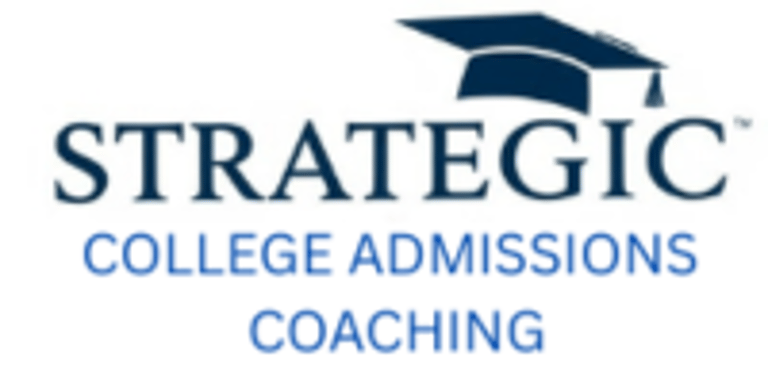9th Grade Matters: Why Early Planning Pays Off
7/13/20243 min read


9th Grade Matters: Why Early Planning Pays Off
Strategic College Admissions Coaching
Every year, families reach out to me late in the process—often in the middle or even the end of junior year—wondering how to “catch up” and make up for lost time. While we can absolutely create a strong plan from that point, I can’t help but think how much smoother and less stressful the journey would have been if we’d started in 9th or 10th grade.
The truth is, colleges don’t just look at where you end up academically—they notice your trajectory. A transcript that shows steady growth over four years is far more compelling than a last-minute scramble to load up on advanced courses or pack in extracurriculars.
When you start early, you’re not just preparing for college—you’re building a foundation that allows you to thrive in college.
Academics: Building the Right Foundation
One of the most important early decisions is course selection. In 9th and 10th grade, students often underestimate how much these choices set the stage for later opportunities.
Colleges expect to see that you challenged yourself in a way that makes sense for your abilities and goals. That doesn’t mean piling on every AP class in sight; it means selecting courses that keep doors open for higher-level work later on. For example:
A strong math sequence starting freshman year allows you to reach calculus or statistics by senior year—important for STEM-leaning students.
Early commitment to a language makes it possible to achieve true proficiency, which many competitive schools value.
Choosing a rigorous English or history track develops critical thinking and writing skills that will serve you in essays, interviews, and beyond.
Starting with the right classes means you won’t be boxed in later. I’ve seen too many students realize in junior year that they can’t take the AP science they want because they skipped an earlier prerequisite or try to schedule a full load of APs as seniors because they don’t yet have any on their transcripts. Early planning could have avoided these situations.
Extracurriculars: Experiment, Then Commit
9th and 10th grade are considered “exploration years,” a time to sample different activities—join the debate team, try theater, volunteer with a local organization, or explore a sport you’ve never played.
By the end of sophomore year, though, it’s wise to begin narrowing your focus. Admissions officers are far more impressed by depth than by a résumé with a dozen unrelated activities.
Depth doesn’t have to mean winning national awards. It can mean:
Taking on leadership in a school club and growing its membership.
Developing an independent project, like researching local history or coding a community app.
Building a sustained relationship with a volunteer organization and becoming a reliable, integral part of their work.
These commitments show that you can stick with something, grow within it, and contribute in meaningful ways. That’s exactly what colleges are looking for.
Character and Skills: The Quiet Differentiators
While grades and activities get the most attention, skills and character often tip the scales in admissions. Leadership, time management, communication, resilience—these are qualities that not only help you get into college but also succeed there.
You can develop them through summer programs, internships, part-time jobs, or independent study. I’ve had students who spent a summer working in their family’s restaurant learn as much about teamwork and problem-solving as others did in elite summer seminars. The difference is in how those experiences are framed in the application.
Planning Ahead, Stressing Less
When you start early, you can space out important milestones rather than cramming them all into junior year. That means:
Testing (PSAT, SAT, ACT) can be planned strategically rather than rushed.
Essay brainstorming and drafting can begin the summer before senior year, leaving time for revisions.
Campus visits can be spread across seasons, giving you a fuller sense of fit.
Instead of being reactive, you can be proactive—choosing opportunities because they align with your goals instead of because you’re scrambling to check boxes.
Why Early Guidance Matters
The families I’ve worked with from freshman or sophomore year often share that the process feels less overwhelming—not because it’s inherently easier, but because we’ve built a roadmap together. Early guidance means:
Avoiding course selection missteps that limit options later.
Identifying activities that reflect a student’s genuine interests rather than chasing trends.
Knowing when to pivot or double down on a pursuit based on growth and opportunity.
The earlier we start, the more room there is for exploration without the fear of “falling behind.” By senior year, these students often walk into application season with confidence—and a story that naturally reflects who they’ve been becoming for years.
Summing It Up
Starting in 9th or 10th grade doesn’t mean mapping out your entire life—it means giving yourself the space to grow into your best self without panic or last-minute patchwork.
Colleges notice when your transcript, activities, and essays tell a cohesive story. That story is much easier to write when it’s been unfolding with intention from the start.
Most important, early planning transforms not just applications, but the student experience itself. When you lay the groundwork early, you don’t just get into a great college—you arrive there ready to thrive.
Guidance
Global Support, Wherever You Are
Success
Dreams
Succeed@strategiccollegeadmissionscoaching.com
+1-917-456-6056
© 2025. All rights reserved.
We work remotely with students across the U.S. and around the world. Through video calls, messaging, and collaborative tools, we provide personalized, one-on-one guidance—no matter your location or time zone. Whether you’re in New York, Dubai, or anywhere in between, you’ll receive the same expert support and strategic advice every step of the way.
